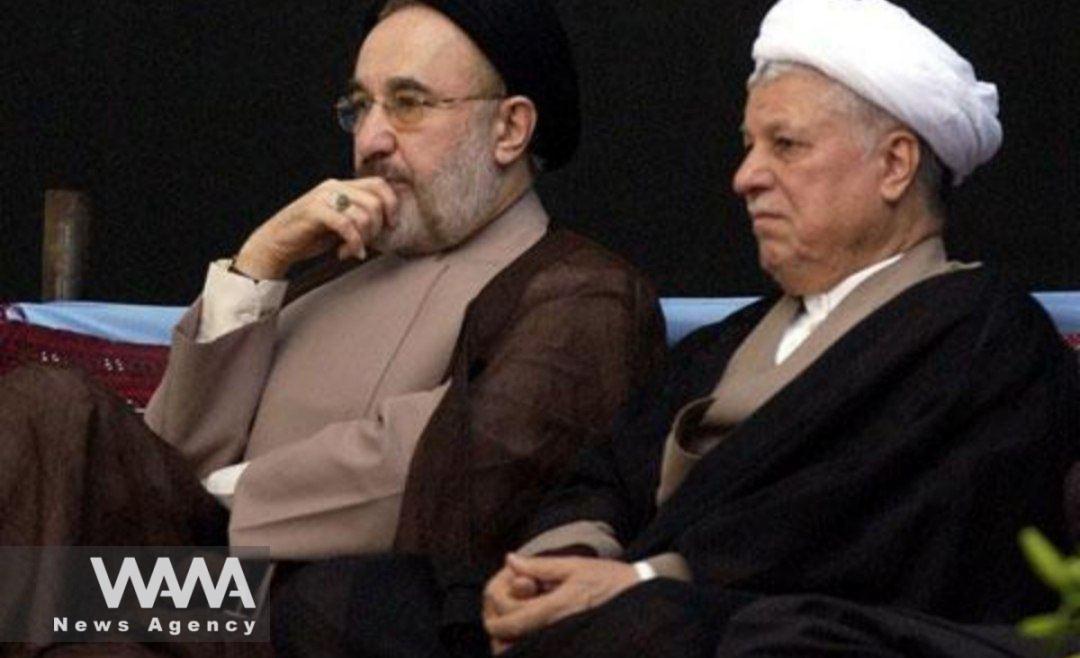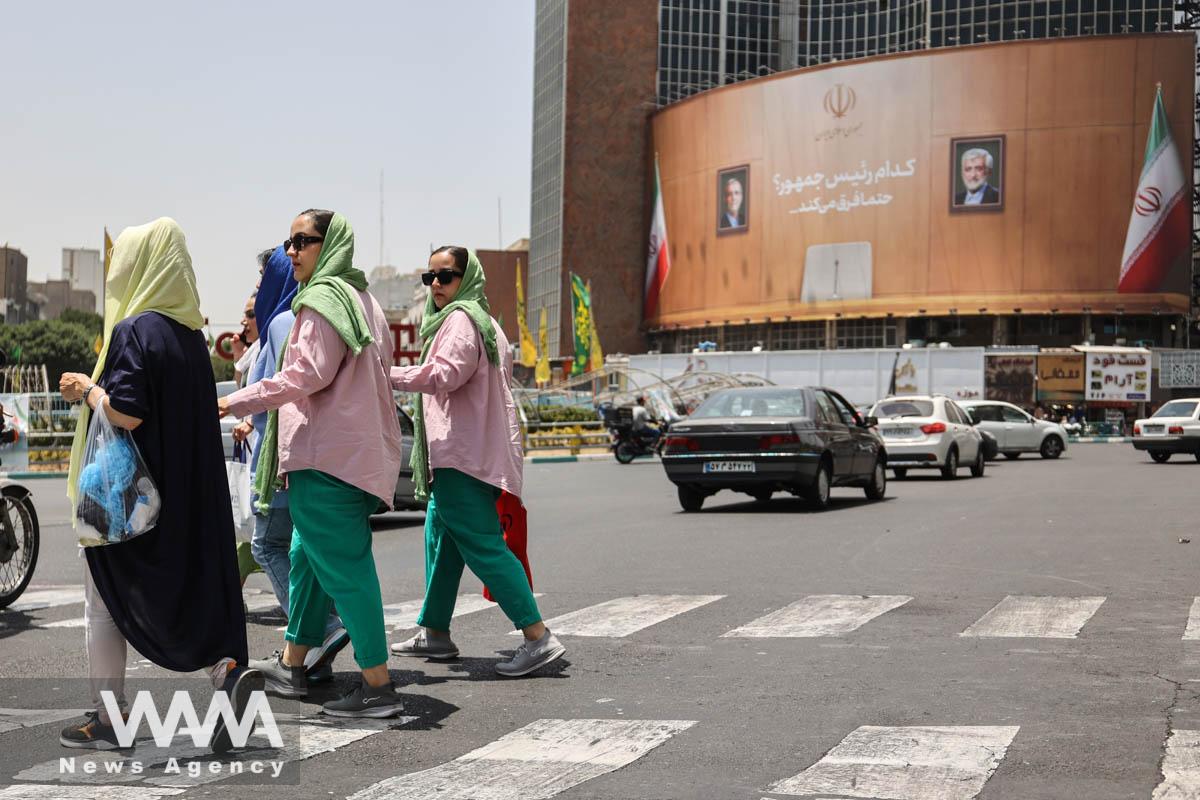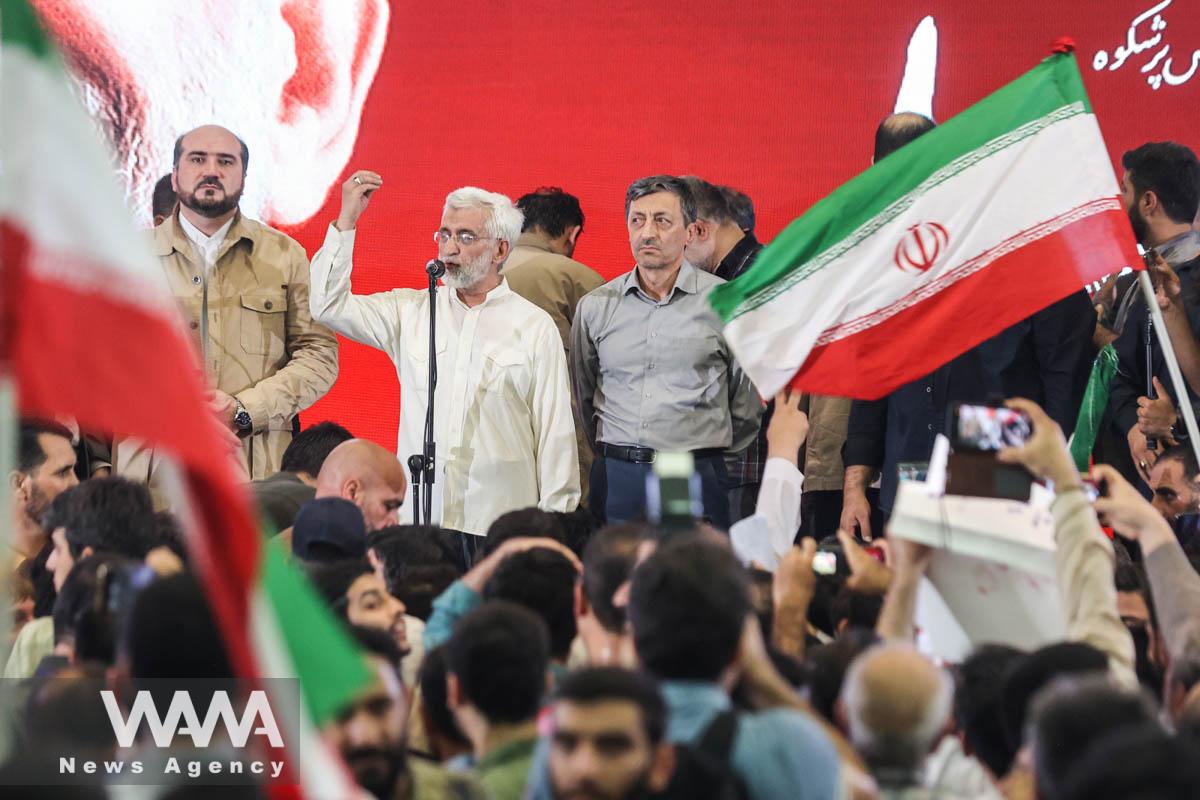Widespread Support, Reverse Outcome
WANA (July 05) – Presidential elections in Iran have always seen extensive endorsements from elites and prominent political figures. However, these endorsements have sometimes backfired, leading to the defeat of the endorsed candidate.
A notable example is the 1997 election between Ali Akbar Nateq-Nouri and Mohammad Khatami. What are the reasons for this reverse outcome, and is it possible that it will happen again in the 2024 election between Saeed Jalili and Masoud Pezeshkian?
1997 Election: Nateq-Nouri vs. Khatami
In the 1997 election, Ali Akbar Nateq-Nouri, a prominent conservative figure, was widely supported by principlist and conservative factions. He had backing from many state institutions and conservative media, and many expected him to win easily.
However, Mohammad Khatami, a lesser-known reformist figure, garnered widespread public support with his political and social reform agenda, winning a significant 69% of the votes.

Seyed Mohammad Khatami (left) and Hashemi Rafsanjani, The former presidents of Iran. Social Media / WANA News Agency
Reasons for the Reverse Outcome in 1997
1. Misalignment with Public Sentiment: The extensive elite support for Nateq-Nouri did not align with the public’s needs and desires. At that time, people were eager for change and reforms, and Nateq-Nouri, as a conservative representative, did not promise significant changes.
In contrast, Khatami, with promises of greater freedom, cultural and social reforms, and strengthening civil society, gained the people’s trust and votes.
2. Perceived Lack of Authenticity: Voters may perceive political endorsements as strategic rather than genuine. In the 1997 election, many viewed the broad support from state institutions for Nateq-Nouri as an attempt to maintain the status quo and prevent real change.
This led to doubts about the authenticity and sincerity of the elites’ support.
3. Backlash Effect: Widespread support for a candidate can trigger an adverse reaction among voters, especially if these endorsements come from controversial figures or groups.
For Nateq-Nouri, the extensive support from state institutions and conservative media created a sense of resistance among voters, ultimately benefiting Khatami.

People walk past a billboard with pictures of presidential candidates Masoud Pezeshkian and Saeed Jalili on a street in Tehran, Iran, July 4, 2024. Majid Asgaripour/WANA (West Asia News Agency)
2024 Election: Jalili vs. Pezeshkian
In the 2024 election, Saeed Jalili, one of the leading principlist candidates, has entered the race with extensive support from conservative factions. This support may mirror the 1997 election, where widespread endorsements for Nateq-Nouri backfired.
Possibility of Repeating the 1997 Experience for Jalili
1. Misalignment with Social Desires: Just as in the 1997 election, where extensive support for Nateq-Nouri did not align with public needs, the widespread support for Jalili in 2024 might not align with current social desires.
If people feel that Jalili cannot implement the changes and reforms they seek, they may turn to his rival, Masoud Pezeshkian, who might have a more reformist agenda.
2. Perceived Lack of Authenticity: Just as in 1997, when many saw the broad support for Nateq-Nouri from state institutions as a move to maintain the status quo, in 2024, if people feel that the extensive support for Jalili is merely a strategic move to retain power, they may doubt his authenticity and sincerity and look for a candidate who seems more genuine and honest.
3. Backlash Effect: Widespread support for Jalili might create a negative reaction among voters. Suppose people feel that Jalili represents conservative factions aiming to maintain the current state.
In that case, they might shift their support to Pezeshkian to express their dissatisfaction, just as many voted for Khatami in 1997 to show their discontent with the status quo.

Iranian presidential candidate Saeed Jalili speaks during a campaign event in Tehran, Iran, July 3, 2024. Majid Asgaripour/WANA (West Asia News Agency)
The 1997 election demonstrated that extensive endorsements from elites and state institutions do not necessarily lead to victory. Ultimately, the people make the final decision based on their needs and expectations.
In the 2024 election, if widespread support for Jalili does not align with social desires and public sentiment, it may backfire, leading people to favor his rival, Masoud Pezeshkian.
This reality highlights the importance of paying more attention to society’s needs and desires and presenting practical and implementable programs.
By WANA writer: R. Hejazi












